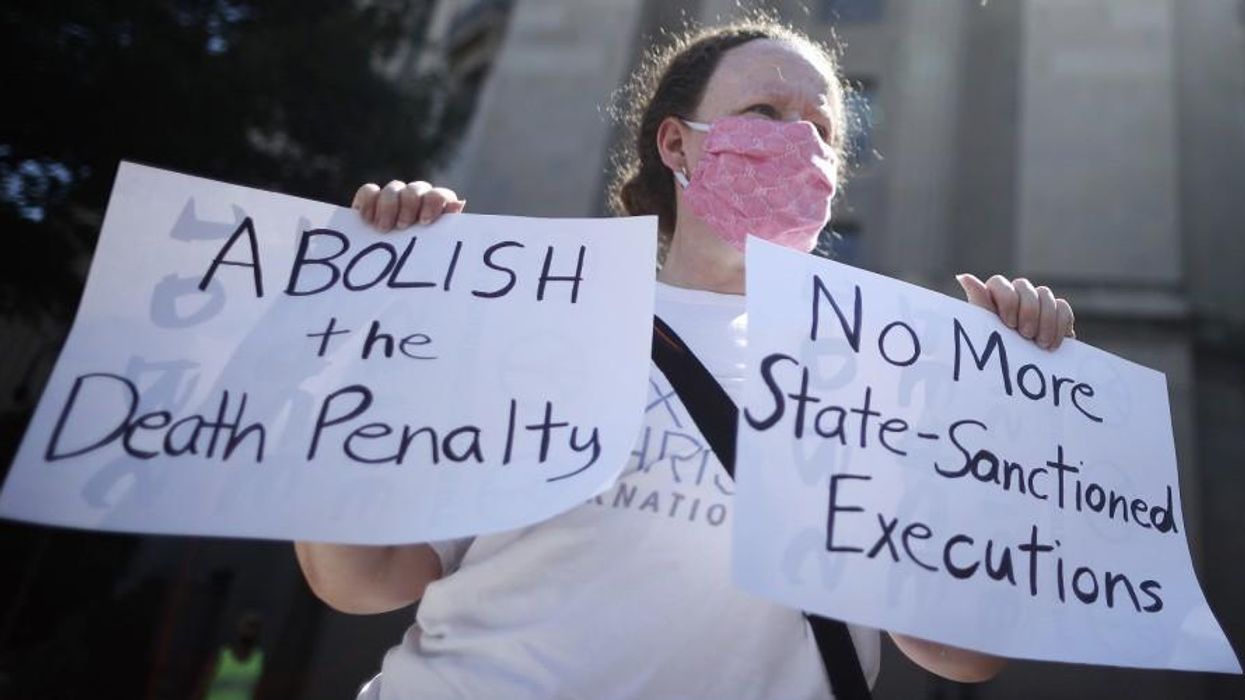South Carolina Execution 'Assembly Line' Rolls On With Killing of Richard Moore
"The state is motivated to kill condemned people as quickly as possible, and they do that despite evidence that might change their minds," said one anti-death penalty campaigner.
Despite pleas from his sentencing judge, jurors in his trial, and the former head of the state Department of Corrections, South Carolina executed Richard Moore by lethal injection Friday evening after Republican Gov. Henry McMaster and the U.S. Supreme Court declined to intervene in the latest in a series of state-sanctioned killings.
The Charleston Post and Courier reported that Moore was pronounced dead at 6:24 pm local time, 21 minutes after the lethal injection was administered.
"Tonight, the state of South Carolina needlessly took the life of Richard Moore—a loving father and grandfather, a loyal friend, and a devoted follower of Christ," the criminal justice reform group Justice 360 said in a statement. "He was not a danger to anyone, and the state eliminated a glowing example of reform and rehabilitation."
Moore, 59, was convicted of the 1999 murder of convenience store clerk James Mahoney. Moore—who was unarmed when he entered the store—argued that he shot Mahoney in self-defense after the clerk pulled out a gun during an argument over correct change. An all-white jury found Moore guilty of murder and armed robbery.
"This is definitely part of my life I wish I could change. I took a life. I took someone's life. I broke the family of the deceased," Moore said in a video accompanying his clemency petition. "I pray for the forgiveness of that particular family."
Death penalty opponents said Moore's case underscores capital punishment's literally fatal flaws.
"Richard Moore's case, like those of so many others on death row, was tainted with racial bias, including as the two prospective Black jurors were peremptorily dismissed, resulting in an all-white jury," Amnesty International USA researcher Justin Mazzola said in a statement after the execution.
"In addition to the racial bias, the crime that Moore committed was not premeditated, which raised serious concerns as to whether it rose to the level for which the death penalty is reserved in U.S. constitutional law," Mazzola added. "It's shameful that racial bias and lack of premeditation were not enough to convince Gov. McMaster to grant clemency to Richard Moore. Gov. McMaster could have used his clemency power instead of overseeing yet another execution in his state."
Moore was initially forced to choose whether he would be killed by electric chair or firing squad following the 2021 passage by South Carolina's Republican-led Legislature of a new capital punishment law amid a shortage of the lethal injection drug pentobarbital. Moore chose the firing squad.
In 2022, the South Carolina Supreme Court temporarily stayed Moore's execution. He subsequently changed his choice of execution method after the state restocked pentobarbital.
Advocates for Moore pointed to his flawless prison behavior and mentorship to other inmates. Among those urging clemency for Moore were Retired Circuit Court Judge Gary Clary, who sentenced Moore to die.
"Over the years I have studied the case of each person who resides on death row in South Carolina," Clary wrote to McMaster on Tuesday. "Richard Bernard Moore's case is unique, and after years of thought and reflection, I humbly ask that you grant executive clemency to Mr. Moore as an act of grace and mercy."
Jon Ozmint, director of the South Carolina Department of Corrections (SCDC) from 2003 to 2011, wrote, that that Moore "has proven himself to be a reliable, consistent force for good on death row."
However, McMaster informed SCDC Director Bryan Stirling Friday that he had "carefully reviewed and thoroughly considered" Moore's application and "declined to grant executive clemency in this matter."
Moore is the second person executed in South Carolina since it resumed executions. In September, the state killed 46-year-old Freddie Owens. Four more South Carolina death row inmates have exhausted their appeals. They are likely to be executed in the coming months.
"It's like an assembly line," Paul Bowers of the ACLU of South Carolina told The Guardian. "The state is motivated to kill condemned people as quickly as possible, and they do that despite evidence that might change their minds."


